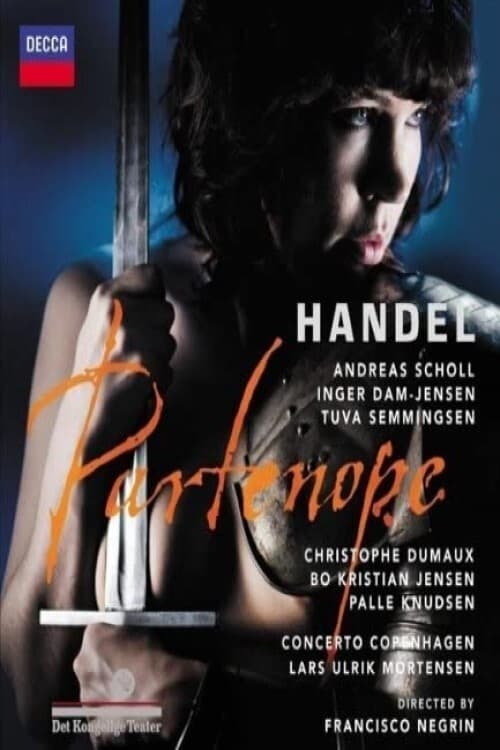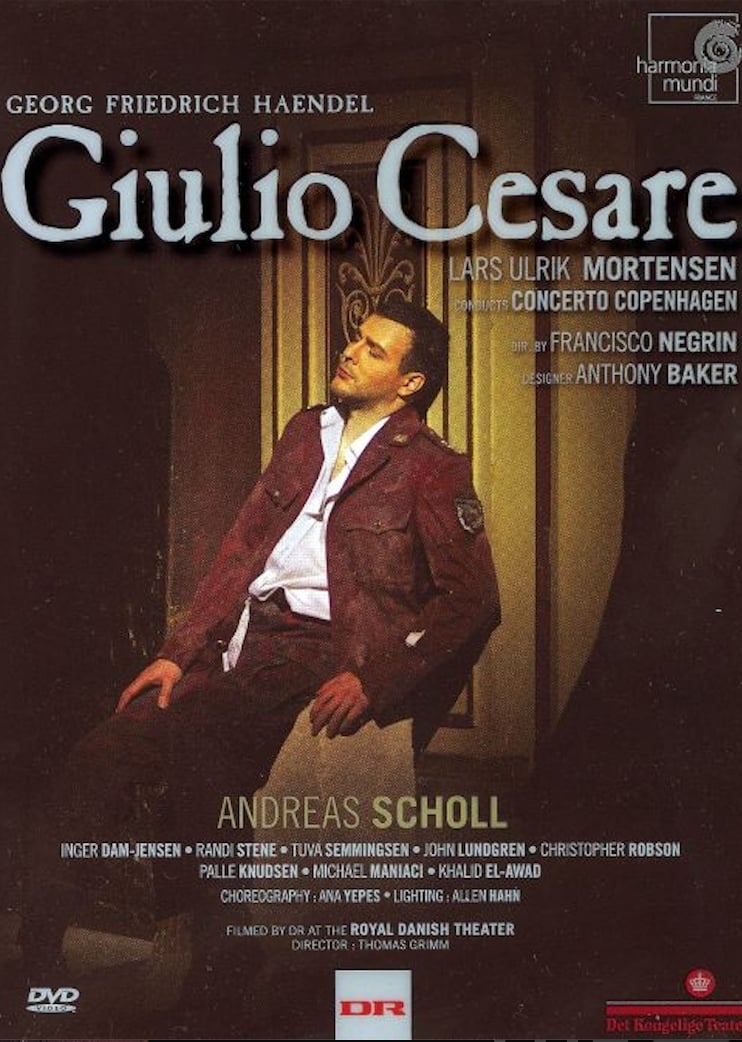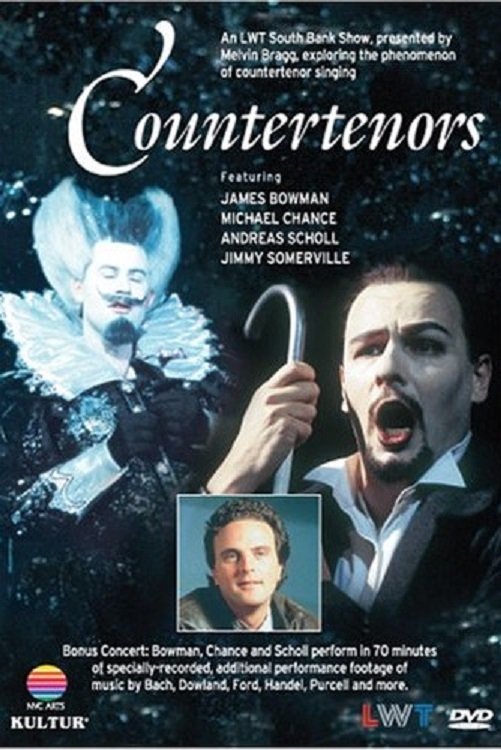

Directed by Uffe Borgwardt. Starring Inger Dam-Jensen, Christophe Dumaux, Andreas Scholl.

Famed countertenor Andreas Scholl sings the title role of Roman emperor Julius Caesar in this memorable production of Georg Friederich Handel's "Giulio Cesare," staged at the Royal Danish Opera. Transporting the action from ancient times to the present day, director Francisco Negrin paints a passionate portrait of Caesar's storied romance with the Egyptian queen Cleopatra (played by soprano Inger Dam-Jensen).

An LWT South Bank Show, presented by Melvyn Bragg, exploring the phenomenon of countertenor singing. With its unique, soaring beauty, the high male voice is today enjoying a huge resurgence in popularity. Heirs to the celebrated castrati of the sixteenth and seventeenth centuries, today's countertenors produce their voices by wholly natural means. In this programme international stars Michael Chance, Andreas Scholl and James Bowman, as well as popstar Jimmy Somerville, shed light on the appeal of the male falsetto. Meanwhile, experts such as Michael White place today's countertenors in their historical context. What emerges is a compelling portrayal of an unmistakable vocal style, rooted in church and operatic tradition, yet completely up-to-date, resonating louder today than at any time in the last two hundred years.
Andreas Scholl (born 10 November 1967) is a German countertenor, a male classical singer in the alto vocal range, specialising in Baroque music. Born into a family of singers, Scholl was enrolled at the age of seven into the Kiedricher Chorbuben boys choir. Aged 13, he was chosen from 20,000 choristers gathered in Rome from around the world to sing solo at a Mass held on 4 January 1981. Just four years later, Scholl was offered a place at the Schola Cantorum Basiliensis, an institution that normally accepts only post-graduate students, based on the strength and quality of his voice. He became an instructor at the Schola Cantorum Basiliensis in Switzerland, succeeding his own teacher, Richard Levitt. Since October 2019, he has been a professor at the Universität Mozarteum in Salzburg, Austria. This is his only position as a teacher now. Scholl's early operatic roles include his standing in for René Jacobs in 1993 at the Théâtre Grévin in Paris, where he caused a sensation. His major roles, such as his debut at Glyndebourne in 1998 as Bertarido in Handel's Rodelinda, a role he reprised at the Metropolitan Opera in 2006, were written for the 18th-century alto castrato Senesino. The bulk of Scholl's recording career has been with Harmonia Mundi and Decca, and his CDs are among Harmonia Mundi's best sellers. He has worked with most contemporary Baroque specialists, including William Christie and Philippe Herreweghe, and is himself a songwriter and composer of ballet and theatre music, with his own professional sound studio. Scholl was born on 10 November 1967 in Eltville, West Germany, and grew up in neighbouring Kiedrich. His entire family were singers, and he was enrolled at the age of seven into the Kiedricher Chorbuben, a boys' choir first documented in 1333. Aged 13, Scholl performed the role of the "second boy" in Mozart's Die Zauberflöte at the Hessisches Staatstheater Wiesbaden, while his sister Elisabeth sang the first boy. That same year he was one of 20,000 choristers from all over the world gathered in Rome for a festival, and was chosen to sing solo at Mass on 4 January 1981, where he met Pope John Paul II. Along with his fellow choristers of the Kiedricher Chorbuben, Scholl was an extra in the film The Name of the Rose, playing a young monk standing alongside Sean Connery in scenes shot at Eberbach Abbey, near Kiedrich. Scholl lists his musical heroes as Howard Jones, Orchestral Manoeuvres in the Dark (OMD), New Order and the Pet Shop Boys. ... Source: Article "Andreas Scholl" from Wikipedia in English, licensed under CC-BY-SA 3.0.
By browsing this website, you accept our cookies policy.